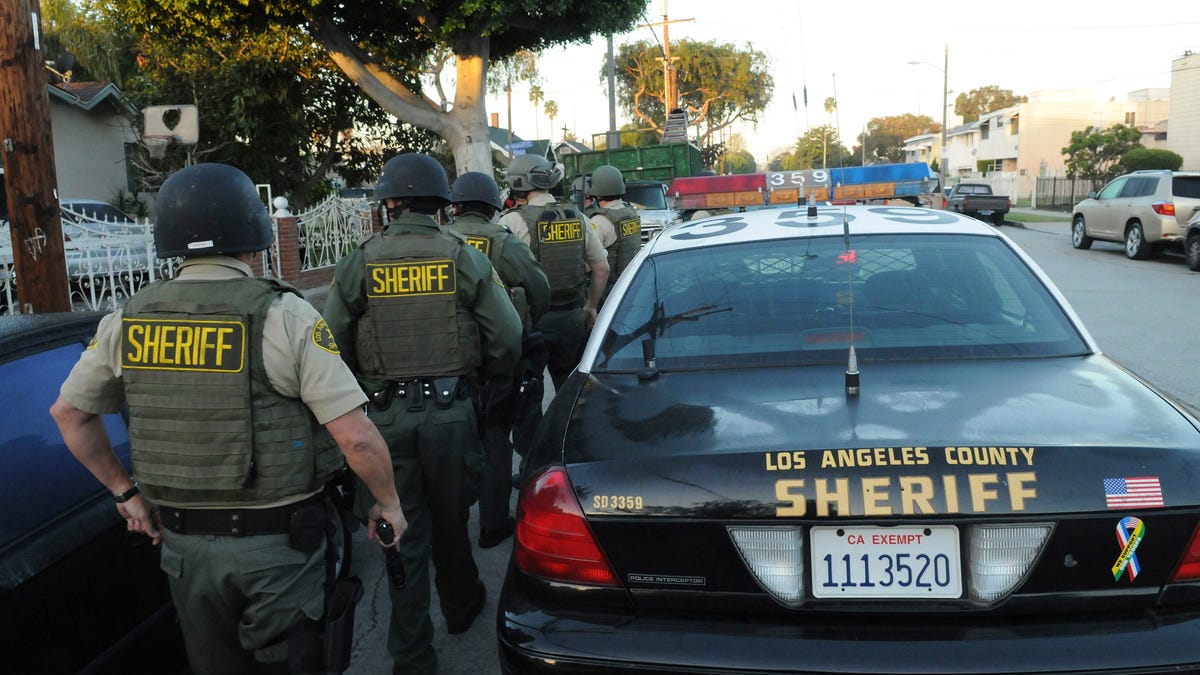
FILE: Feb. 9, 2011: The Los Angeles County Sheriff's Department --which supports California lawmakers' efforts to stop 'swatting" -- prepares to serve search warrants in Los Angeles, Calif. (REUTERS)
California lawmakers are trying to crack down on malicious pranksters who make 911 calls that send police rushing to people's homes.
The victims of the pranks -- known as 'swatting' -- have included political conservatives and celebrities like Russell Brand, Sean Combs, Selena Gomez, Rihanna, Ryan Seacrest and Justin Timberlake
On Tuesday, a state Senate committee unanimously approved a bill to make those convicted of such hoaxes pay the cost of the police response. This is considered a first step in the process that would eventually head to the governor's desk.
A few days earlier, the Los Angeles Police Department responded to at least one call about shots fired at Timberlake's Hollywood-area home, arriving only to find no evidence of a shooting.
The bill is sponsored by state Democratic Sen. Ted Lieu, who thinks the legislation is needed to avert inevitable injury or death.
"The recent spate of phony reports to law enforcement officials that someone's home is being robbed or is held hostage is dangerous, and it's only a matter of time before there's a tragic accident," he said after the vote.
The term swatting comes from Special Weapons and Tactics -- or SWAT -- teams that respond to the calls.
The legislation has the backing of the Los Angeles County Sheriff's Department, which says many of the 400 swatting incidents across the country have occurred in its jurisdiction, according to The Los Angeles Times.
The original bill included a minimum 120 days in jail for those convicted, but the proposal was eliminated in part because of opposition from the California Attorneys for Civil Justice.
In May 2012, Conservative blogger and Fox News contributor Erick Erickson said he was the victim of a swatting call, with sheriff's deputies arriving at his Macon, Ga., home as his family gathered for dinner. He said the episode was unnerving, particularly considering one deputy had his hand on his pistol.
The LAPD purportedly said this week it will no longer broadcast the swatting calls or give reporters immediate information about them, to avoid giving the pranksters publicity and the thrill they seek.




